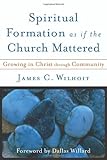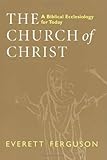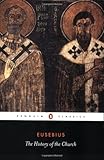|
|
Help |
| Home - Religion - Church Of Christ (Books) | |
e99 Online Shopping Mall
|
|
Help |
| Home - Religion - Church Of Christ (Books) | |
| 1-20 of 99 | Next 20 |
click price to see details click image to enlarge click link to go to the store
| 1. Why I Am a Member of the Church of Christ by Leroy Brownlow | |
 | Paperback:
Pages
(2006)
-- used & new: US$7.99 (price subject to change: see help) Asin: B001UDJVJ2 Average Customer Review: Canada | United Kingdom | Germany | France | Japan |
|
Editorial Review Product Description Customer Reviews (9)
Buy this book, that way you will not have a chance of converting. ... Read more | |
| 2. What Christ Thinks of the Church: An Exposition of Revelation 1-3 by John R. W. Stott | |
 | Paperback: 128
Pages
(2003-10)
list price: US$10.99 -- used & new: US$50.99 (price subject to change: see help) Asin: 0801064716 Average Customer Review: Canada | United Kingdom | Germany | France | Japan |
|
Editorial Review Product Description Customer Reviews (5)
Fortunately, this slim volume is the exception. Mr. Stott, a noted Biblical expositor wastes no words in addressing the beginning of Revelation. Examining each of the churches to whom Christ sent a letter, he gives the history of these places and how they might have viewed the messages, then makes them applicable to problems today. **** After reading this, you won't know who the Anti-Christ is, nor will you know when the age will end. It is not a countdown to Armegeddon, but sound advice for how to live until then. If you are scared to read Revelation, reading this book will make it a bit easier to conquer that phobia. **** Reviewed by Amanda Killgore ... Read more | |
| 3. The Church of Christ by Edward C Wharton | |
 | Paperback: 174
Pages
(2010-06-01)
list price: US$10.99 -- used & new: US$10.99 (price subject to change: see help) Asin: 0892255765 Average Customer Review: Canada | United Kingdom | Germany | France | Japan |
|
Editorial Review Product Description Customer Reviews (3)
| |
| 4. The Shaping of the United Church of Christ: An Essay in the History of American Christianity by Louis H. Gunnemann, Charles Shelby Rooks | |
 | Paperback: 277
Pages
(1999-06)
list price: US$20.00 -- used & new: US$11.97 (price subject to change: see help) Asin: 0829813454 Average Customer Review: Canada | United Kingdom | Germany | France | Japan |
Customer Reviews (1)
| |
| 5. Spiritual Formation as if the Church Mattered: Growing in Christ through Community by James C. Wilhoit | |
 | Paperback: 240
Pages
(2008-02-01)
list price: US$21.99 -- used & new: US$12.48 (price subject to change: see help) Asin: 0801027764 Average Customer Review: Canada | United Kingdom | Germany | France | Japan |
|
Editorial Review Product Description Customer Reviews (2)
| |
| 6. The Church of Christ: A Biblical Ecclesiology for Today by Everett Ferguson | |
 | Paperback: 443
Pages
(1996-06)
list price: US$38.00 -- used & new: US$22.77 (price subject to change: see help) Asin: 0802841899 Average Customer Review: Canada | United Kingdom | Germany | France | Japan |
|
Editorial Review Product Description Customer Reviews (2)
| |
| 7. The Truth About the Church of Christ by Hugh Pyle | |
 | Paperback: 99
Pages
(1977-06)
list price: US$2.95 -- used & new: US$5.00 (price subject to change: see help) Asin: 0873981278 Average Customer Review: Canada | United Kingdom | Germany | France | Japan |
|
Editorial Review Product Description Customer Reviews (5)
Perhaps the reason is that most Christians have considered the Churches of Christ to be just another Christian denomination. However, this group claims: Dr. Pyle's book, The Truth About the Church of Christ, mainly deals with point #2 because, as he states, "To be wrong about salvation, of course, is to miss everything!" (p. 17). I found that the author adequately dealt with the cult's "proof-texts" for baptismal regeneration: Mk. 16:16; Acts 2:38; 1 Pet. 3:21; Acts 22:16; Jn. 3:5 (pp. 37-46). Dr. Pyle also critiques (or should I say, hammers) the Church of Christ teaching that worshiping God with musical instruments is a sin (chapter 9). I must disapprove, however, of the author's sardonic style of writing aimed at the church throughout the whole book. He uses alot of sarcasm: "no one else can pronounce the word 'baptize' quite like a Church of Christ preacher." (p. 14). He also ridicules the CofC ministers: "They are completely waterlogged!" (p. 32), calling them, "our watery friends" (p. 97). While we, as Christians, are called to share the truth and expose false doctrine, we must do so in love (1 Cor. 13:6; Eph. 4:15). ... Read more | |
| 8. Church History Volume One: From Christ to Pre-Reformation: The Rise and Growth of the Church in Its Cultural, Intellectual, and Political Context by Everett Ferguson | |
 | Hardcover: 544
Pages
(2005-06-14)
list price: US$29.99 -- used & new: US$16.01 (price subject to change: see help) Asin: 0310205808 Average Customer Review: Canada | United Kingdom | Germany | France | Japan |
|
Editorial Review Product Description Customer Reviews (8)
| |
| 9. Bishop C. H. Mason and the Roots of the Church of God in Christ by Ithiel Clemmons | |
 | Paperback: 208
Pages
(1997-01-01)
list price: US$24.99 -- used & new: US$22.48 (price subject to change: see help) Asin: 1562294512 Average Customer Review: Canada | United Kingdom | Germany | France | Japan |
|
Editorial Review Product Description Customer Reviews (6)
| |
| 10. The History of the Church: From Christ to Constantine (Penguin Classics) by Eusebius | |
 | Paperback: 480
Pages
(1990-04-03)
list price: US$17.00 -- used & new: US$8.94 (price subject to change: see help) Asin: 0140445358 Average Customer Review: Canada | United Kingdom | Germany | France | Japan |
|
Editorial Review Product Description Customer Reviews (29)
| |
| 11. Saving Jesus from the Church: How to Stop Worshiping Christ and Start Following Jesus by Robin R. Meyers | |
 | Paperback: 256
Pages
(2010-03-01)
list price: US$14.99 -- used & new: US$8.57 (price subject to change: see help) Asin: 0061568228 Average Customer Review: Canada | United Kingdom | Germany | France | Japan |
|
Editorial Review Product Description From One of America's Leading Pastors, a Bold Call to Restore Christianity's True Mission: Following Jesus The marriage of bad theology and hypocritical behavior by the church has eroded our spiritual lives. Taking the best of biblical scholarship, Meyers recasts core Christian concepts in an effort to save Christianity from its obsession with personal salvation. Not a plea to try something brand new, but rather the recovery of something very old, Saving Jesus from the Church shows us what it means to follow Jesus's teachings today. Customer Reviews (24)
| |
| 12. Hidden Histories 2 (Hidden Histories in the United Church of Christ) | |
 | Paperback: 240
Pages
(2007-06-01)
list price: US$18.00 -- used & new: US$9.35 (price subject to change: see help) Asin: 0829807535 Canada | United Kingdom | Germany | France | Japan |
|
Editorial Review Product Description | |
| 13. Loving Your Wife as Christ Loves the Church by Larry E McCall | |
 | Paperback: 206
Pages
(2009-02-12)
list price: US$15.99 -- used & new: US$9.33 (price subject to change: see help) Asin: 088469304X Average Customer Review: Canada | United Kingdom | Germany | France | Japan |
|
Editorial Review Product Description Customer Reviews (11)
| |
| 14. Theology and Identity: Traditions, Movements, and Polity in the United Church of Christ | |
 | Paperback: 201
Pages
(2008-01-30)
list price: US$20.00 -- used & new: US$12.69 (price subject to change: see help) Asin: 0829817727 Canada | United Kingdom | Germany | France | Japan |
| 15. Eucharist: Christ's Feast with the Church by Laurence Hull Stookey | |
 | Paperback: 208
Pages
(1993-04)
list price: US$24.00 -- used & new: US$15.47 (price subject to change: see help) Asin: 0687120179 Average Customer Review: Canada | United Kingdom | Germany | France | Japan |
|
Editorial Review Product Description Customer Reviews (3)
| |
| 16. Christ's Time for the Church Calendar by Laurence Hull Stookey | |
 | Paperback: 190
Pages
(1996-07)
list price: US$22.00 -- used & new: US$16.95 (price subject to change: see help) Asin: 0687011361 Average Customer Review: Canada | United Kingdom | Germany | France | Japan |
|
Editorial Review Product Description Customer Reviews (8)
| |
| 17. Inside the Churches of Christ: The Reflection of a Former Pharisee On What Every Christian Should Know About the Nondenomination Denomination by Charles Simpson | |
 | Paperback: 308
Pages
(2009-02-09)
list price: US$17.00 -- used & new: US$15.29 (price subject to change: see help) Asin: 1438901399 Average Customer Review: Canada | United Kingdom | Germany | France | Japan |
|
Editorial Review Product Description Customer Reviews (4)
| |
| 18. The History of the Church from Christ to Constantine (Classics) by Eusebius | |
 | Paperback: 432
Pages
(1981-09-24)
list price: US$5.95 -- used & new: US$153.53 (price subject to change: see help) Asin: 0140441387 Average Customer Review: Canada | United Kingdom | Germany | France | Japan |
Customer Reviews (2)
| |
| 19. Hymns: The Church of Jesus Christ of Latter-Day Saints by The Church of Jesus Christ of Latter-Day Saints | |
| Hardcover:
Pages
(1972)
Asin: B000M7V0F0 Average Customer Review: Canada | United Kingdom | Germany | France | Japan | |
Customer Reviews (1)
| |
| 20. Balaam's Unofficial Handbook of the United Church of Christ by Balaam's Courier Staff | |
 | Paperback: 157
Pages
(2008-07-01)
list price: US$16.00 -- used & new: US$9.86 (price subject to change: see help) Asin: 0829817972 Average Customer Review: Canada | United Kingdom | Germany | France | Japan |
|
Editorial Review Product Description Customer Reviews (1)
| |
| 1-20 of 99 | Next 20 |